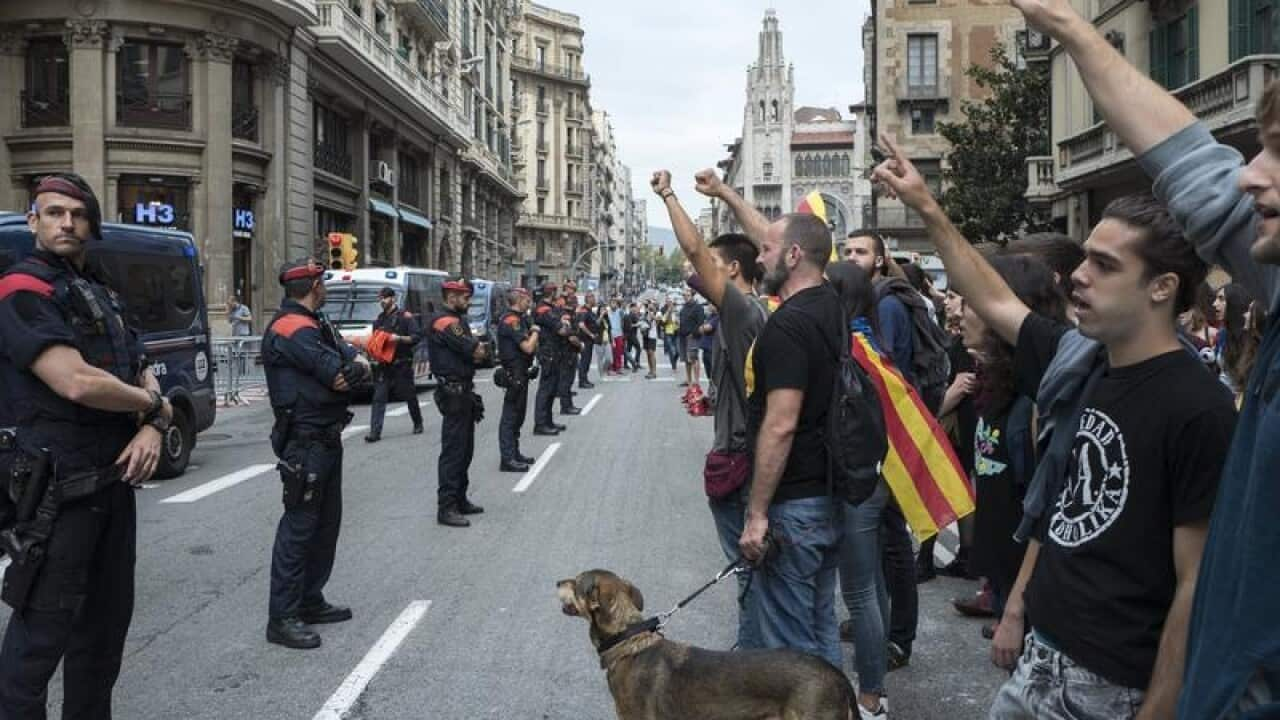Tuesday's stoppages, originally billed as a region-wide general strike but disavowed by Spain's largest unions, affected the public sector, public transport and basic services.
Normally busy metro stations in Barcelona were deserted as services were cut back sharply, pickets blocked traffic on Gran Via street and traffic on six major highways in the region was disrupted by protests.
Elsewhere, the response to the strike call was patchy with some shops, supermarkets and cafes open and some closed. The Boqueria market in Barcelona was almost empty.
Related reading

Catalan Pique jeered by fans at Spain training session
Pro-independence groups and trade unions in Catalonia called a general strike for Tuesday after Spanish police forcibly tried to close polling stations on Sunday after a referendum on Catalan independence from Spain was banned by the constitutional court.
Scenes of armoured Spanish police swinging truncheons and firing rubber bullets at peaceful voters have been widely condemned, with the European Union calling for talks to break the stalemate between Madrid and Barcelona.
On Sunday, Prime Minister Mariano Rajoy said the ballot had failed, while Catalan leader Carles Puigdemont vowed to continue with the independence process after millions voted to leave.
Spain's two largest unions on Monday said they would not take part in the general strike and also called for dialogue between the central government and Catalonia, criticising both the call for independence and the heavy-handed police tactics.
"The UGT and the CCOO clearly state that we do not back this position or this political strategy. We are not calling a general strike for October 3," they said.
However, many services under the control of the Catalan government did see some stoppages, with public transport running at around 40 per cent, according to reports, while port workers and civil servants also walked out.
Entrances to some government offices were blocked by crowds protesting in favour of independence.










